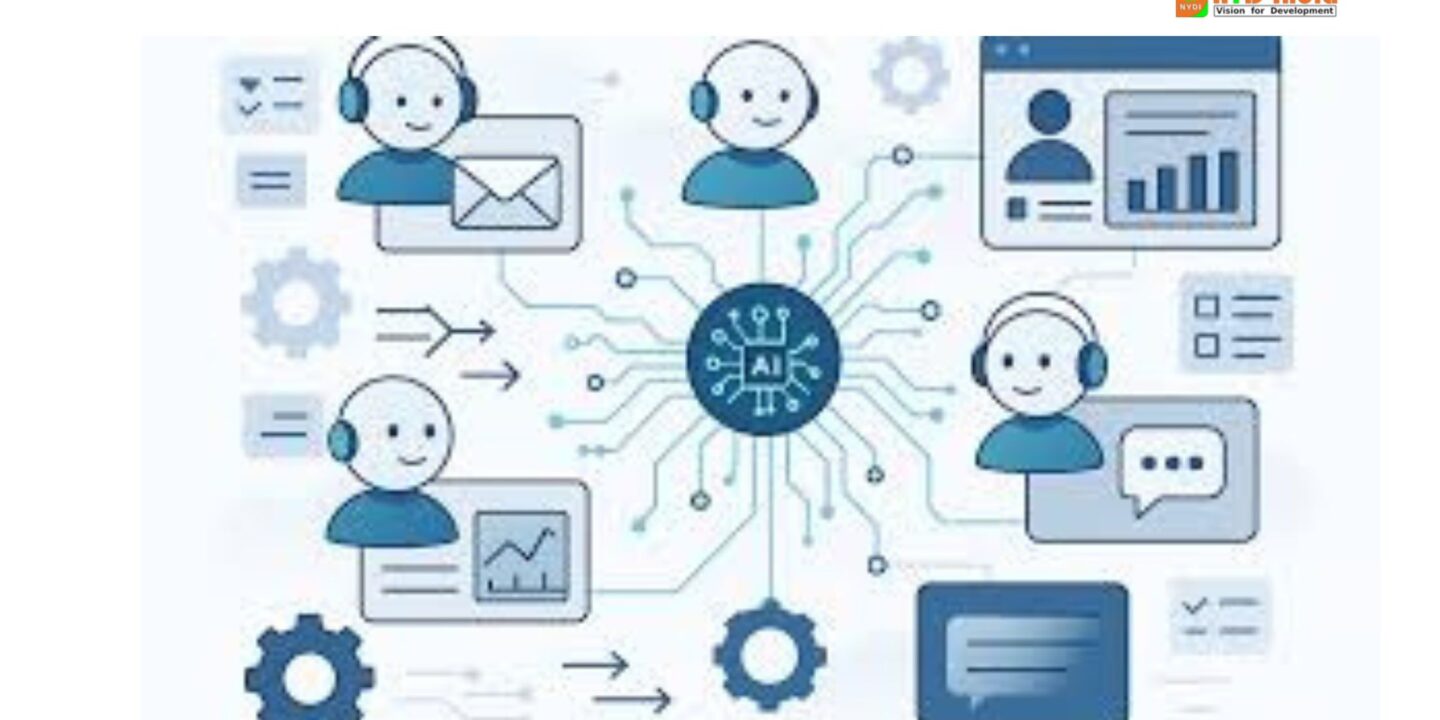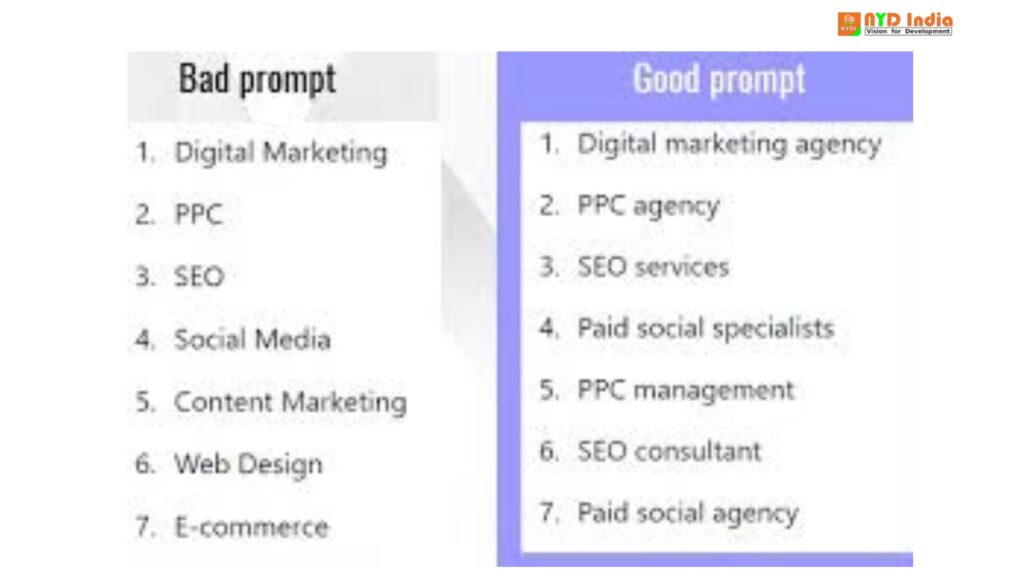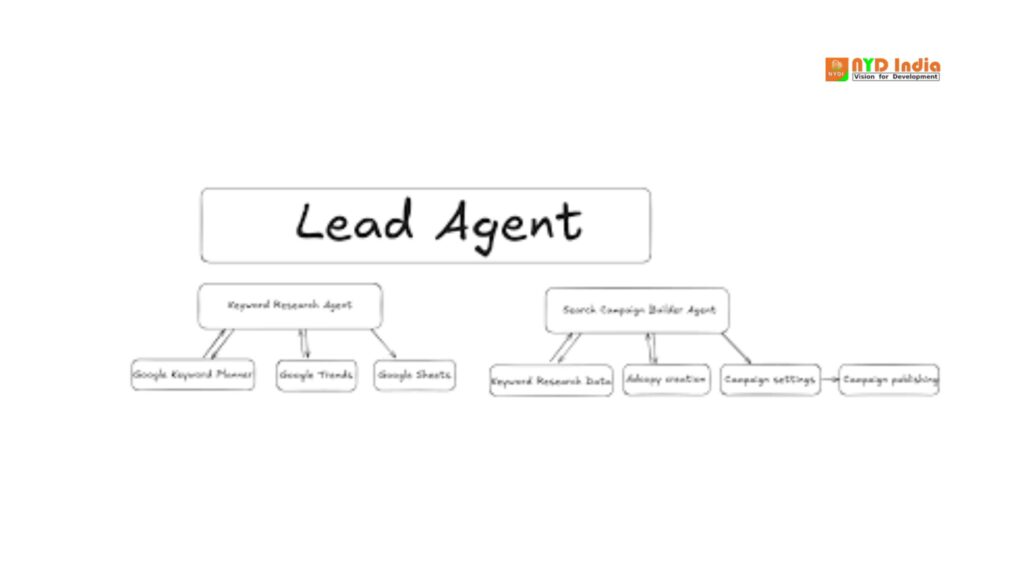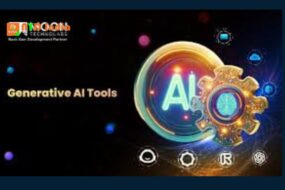
Doing more with less appears to be a consistent subject for trade proprietors and marketers. That utilized to cruel working more hours and finding hacky alternate routes to spare time.
But presently there’s a modern breed of computer program called AI specialists that guarantees to produce more comes about and spare you time in the prepare. They’re as of now doing things like replying client questions, overseeing modern leads, and filling stock rooms more efficiently.
We’re here to clarify how AI operators work in the genuine world and appear you how to utilize them to develop your trade.
What is an AI agent?

AI operators are instruments that utilize artificial intelligence to reply questions and unravel issues with small or no human mediation. They can get it changing settings and make choices on their claim to accomplish a goal.
You may be commonplace with straightforward AI chatbots. AI specialists can work so also but with one particular contrast that sets them separated. An AI operator doesn’t fair answer to a inquiry. It can learn from each interaction to make strides its execution. As you’ll see, that capacity to adjust lets them take on exceptionally complex assignments.
How do AI agents work?
There are hundreds of unique AI agents, and each works a little differently. But at the most basic level, they follow four similar procedures.
Establishing Objectives
AI agents are programmed to accomplish particular objectives, such as organizing appointments, enhancing social media content, or overseeing the climate control in an office building. The initial step for an agent is to identify a specific objective.
Objectives can be assigned by a user, or an AI agent may autonomously establish its own objectives, contributing to a broader aim.
Gathering and Analyzing Information
AI agents make choices and generate outputs based on the data they receive. This process typically begins with a foundational training dataset (such as a year’s worth of customer service inquiries). Subsequently, the agent will continuously gather additional data through ongoing interactions.
Information can originate from various sources. Some agents analyze social media updates, news articles, customer buying patterns, etc. The quality and currency of the dataset directly influence the reliability of the outputs generated by an AI agent.
Making Choices and Forecasting Results
This is where the real innovation takes place. AI agents apply algorithms and machine learning techniques to make decisions and forecasts using the available data.
For instance, if your pizza shop employed an autonomous delivery robot, it could:
1.Assess all available delivery routes.
2.Learn from each delivery attempt to minimize time and risk.
3.Modify its behavior based on prior experiences and current conditions (such as navigating around a construction area or yielding to pedestrians).
4.Anticipate possible outcomes, like predicting a delay on future Monday evenings if past data shows longer delivery times on those nights.
Autonomous Learning
AI agents have the capability to learn on their own, enhancing their effectiveness with each interaction without needing direct human involvement.
For instance, consider a customer support AI implemented on your online store. Your objective is for it to efficiently resolve customer questions, and you’ve supplied it with pre-written replies to frequently asked queries.
Initially, the agent responds with basic, generic answers. As interactions progress, it monitors customer satisfaction metrics, resolution rates, and the sentiment of messages. By identifying which replies yield the best outcomes, the agent refines its communication style and problem-solving techniques.
What are the benefits of using AI agents for your business?

Boost Efficiency and Save Time
Utilizing an AI agent allows you to automate mundane tasks, freeing you up for strategic initiatives or product enhancement.
Imagine assigning an AI agent to manage your incoming leads. It could summarize call transcripts, categorize leads based on service interest or geographic location, and generate follow-up reminders for priority leads—all of which would save you hours of organizational effort.
Enhance Accuracy and Consistency
Customers value reliability and want assured, consistent responses when they inquire. AI agents can ensure this consistency in several ways. They can harness extensive data, process updates rapidly, and eliminate human errors associated with manual data entry.
Additionally, these agents can execute standardized processes without variation. This helps mitigate human inconsistency.
Moreover, an AI agent can monitor results in real-time and quickly identify discrepancies, making necessary workflow adjustments to minimize the chance of those discrepancies recurring.
They operate around the clock, providing timely responses to customers without delays caused by business hours.
Gain a Competitive Edge
AI agents can gather and respond to large volumes of real-time data, enhancing your competitive position.
Consider how this applies to customer segmentation and personalized marketing. Imagine if each of your leads and customers received tailored emails featuring offers based on their behaviors, spending patterns, and demographics—all without requiring any manual effort on your part.
What are the five types of AI agents?

There are five commonly recognized types of AI agents in operation, although one agent can include several of these types. They’re each suited for different purposes.
Simple reflex AI agents
As their name implies, basic reflex agents are the simplest type of AI agents. They operate using a straightforward “if-this-then-that” framework for decision-making.
A simple example of a reflex agent is a smart thermostat. It detects a drop in room temperature and activates the heater in response.
Model-based AI agents
Model-based AI agents are more sophisticated as they do not just react to immediate inputs. Instead, they construct a model of their surroundings and monitor changes over time, enabling them to anticipate potential outcomes before acting.
An example is a pizza delivery robot functioning as a model-based agent. It does not merely react to a “don’t walk” sign; it remembers traffic regulations, observes pedestrian behavior, and builds models based on this data, which guides it in selecting the optimal delivery route.
Goal-based AI agents
Goal-oriented AI agents often possess even greater sophistication. They evaluate current conditions alongside numerous potential future scenarios to determine the best course of action to achieve a specific goal. These agents employ reasoning to adjust strategies when necessary.
For instance, a digital marketing agency could utilize a goal-oriented agent to analyze and prioritize prospective client leads by:
1.Reviewing inquiries from the website.
2.Scoring them based on need and likelihood of conversion.
3.Sending initial outreach to every lead.
Utility-based AI agents are crafted to navigate scenarios with multiple competing outcomes. They evaluate each possibility using a numerical score and opt for actions that enhance overall benefits or minimize total harms.
An example of a utility-based AI agent is an inventory management system for small businesses, which has three key objectives:
- Preventing stock shortages
- Ensuring a high stock turnover
- Lowering overall product costs
The agent analyzes sales trends and tracks fluctuating vendor prices, determining the best times and quantities to purchase each item, balancing these goals effectively.
On the other hand, learning-based AI agents are designed to enhance their performance through accumulated experience. They adapt their decision-making and develop advanced problem-solving abilities as they learn from their interactions.
A prime example of a learning-based AI agent is Netflix’s recommendation engine, which monitors your viewing habits and refines its suggestions over time based on your preferences.
5 examples of how businesses use AI agents
It’s hard to believe, but there are already hundreds (thousands?) of AI agents working to help businesses become more efficient, profitable, and beneficial to their customers. Here are five real-world examples of how they’re doing it.
Lead Capture and Management
Service-oriented businesses (like roofers and physical therapists) frequently grapple with the need to deliver an outstanding experience for existing customers while promptly addressing new inquiries.
AI agents, such as Dash by LocaliQ, are stepping in to streamline lead management. Dash automatically summarizes lead phone conversations, categorizes each lead for easy access, and prioritizes incoming leads, enabling users to determine the best contacts first.
Customer Support
AI chatbots have evolved considerably from their initial functionalities. Today, there are advanced AI agents capable of grasping the context of customer inquiries and delivering more intricate responses.
Forethought exemplifies an AI agent dedicated to enhancing customer service. When a user directs a question to a Forethought agent, it extracts insights from the intent and tone of the inquiry to execute an appropriate action.
Social Media Scheduling
The repetitive nature of social media marketing, combined with the wealth of data it generates, makes it an ideal area for AI integration.
AI agents in social media scheduling can automatically post at optimal times, generate replies to comments, analyze trends and sentiments around brand mentions, and much more. Sprout Social is a well-known platform that incorporates AI agents for social media management.
Conversational E-commerce Shopping
Traditional chatbots could provide basic information about product availability or pricing. In contrast, conversational shopping AI agents can assist throughout your shopping journey to help you find the right product—even if you are unsure what you need.
Bloomreach provides an AI agent for conversational shopping that learns about individual shoppers, responding to their needs through a website, email, and text messages (with shopper consent).
Think of this AI agent as a virtual store clerk, guiding you in narrowing your options, suggesting alternatives, and presenting upcoming deals—all available even during those late-night shopping sprees.
Human Resources
Recruiting and onboarding new employees is a time-consuming task. HR AI agents can streamline this process by screening candidates, addressing common employee inquiries, and guiding new hires through orientation.
HiredScore AI by Workday serves this purpose by assisting recruiters and hiring managers. It acts as a hiring coach, prioritizing top candidates and sourcing prospects from previous applicants or current staff.
HR is well-suited for AI implementation due to its reliance on repetitive tasks and the need for consistency, allowing AI agents to perform without human error during hiring and onboarding.
4 tips for finding and using AI agents
We’ve reviewed lots of ways AI agents help businesses and shared several examples. The next step is to find the best AI agents for your business and get the most out of them.
Consider your needs
Step one is to review where you need help managing or marketing your business. Ask questions like:
- Where do I spend time on repetitive processes?
- How could an AI agent improve my customer’s experience?
- What skillset do I not have access to?
- Where does my business lose money?
With that list in hand, begin searching for AI agents that help solve those challenges.
Tips for Implementation
- Utilize Free Trials
Many AI agent services offer free tiers or trial periods. If not, inquire with the sales team about trying the product for a month. Allocate time to explore the platform fully within the trial period. - Incorporate Human Oversight
Despite advancements, AI agents are not infallible. Establish when and how human reviews will occur after deployment. Test the AI as customers would, ensuring it meets expectations. - Establish an AI Usage Policy
To ensure employees use AI agents correctly, create a clear usage policy. Start with a straightforward framework and expand it as new challenges emerge. - Set Objectives and Track Progress
It’s essential to remember your investment in an AI agent aims to fulfill specific objectives. Define measurable goals, such as reducing customer support response time by 20%, and regularly assess your progress.
Formulating a successful AI prompt
A well-crafted prompt is essential for effective AI outputs – whether it’s Google’s bidding algorithms relying on first-party data (like conversion volumes and targets) or ChatGPT generating ad copy ideas.
Weak prompts lead to subpar results.
The more detailed information, context, and guidance you provide, the better the output will be.
The quality of your prompt directly affects the accuracy, tone, and relevance of the AI’s response.
Building ad variations
AI tools like Claude can help overcome creative blocks by generating ad copy ideas and variations. AI can assist in the following ways:
- Suggesting ad copy: Provide detailed prompts, including brand context (with a URL if possible), target audience, and ad placement.
- Incorporating audience insights: Use AI-generated audience personas to identify key motivators and tailor messaging.
- Analyzing competitors: Ask AI to review competitor materials, such as customer reviews, to highlight pain points your business can address.
- Creating scripts for ad visualization: Use AI to generate scripts or code (e.g., Google Apps Script) to visualize ad copy in structured formats.
Final Thought
AI agents may seem like a concept from the future, but they are actively enhancing business efficiency and profitability today.
Consider where you would add staff if budget were no concern, and explore the availability of AI agents for that task. If one isn’t available yet, wait a few months; advancements are rapidly unfolding, and a solution will likely emerge soon. If you’re poised to close more leads quickly, now is the time to explore these tools.











